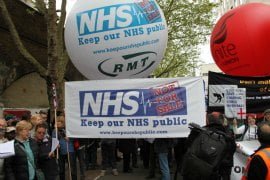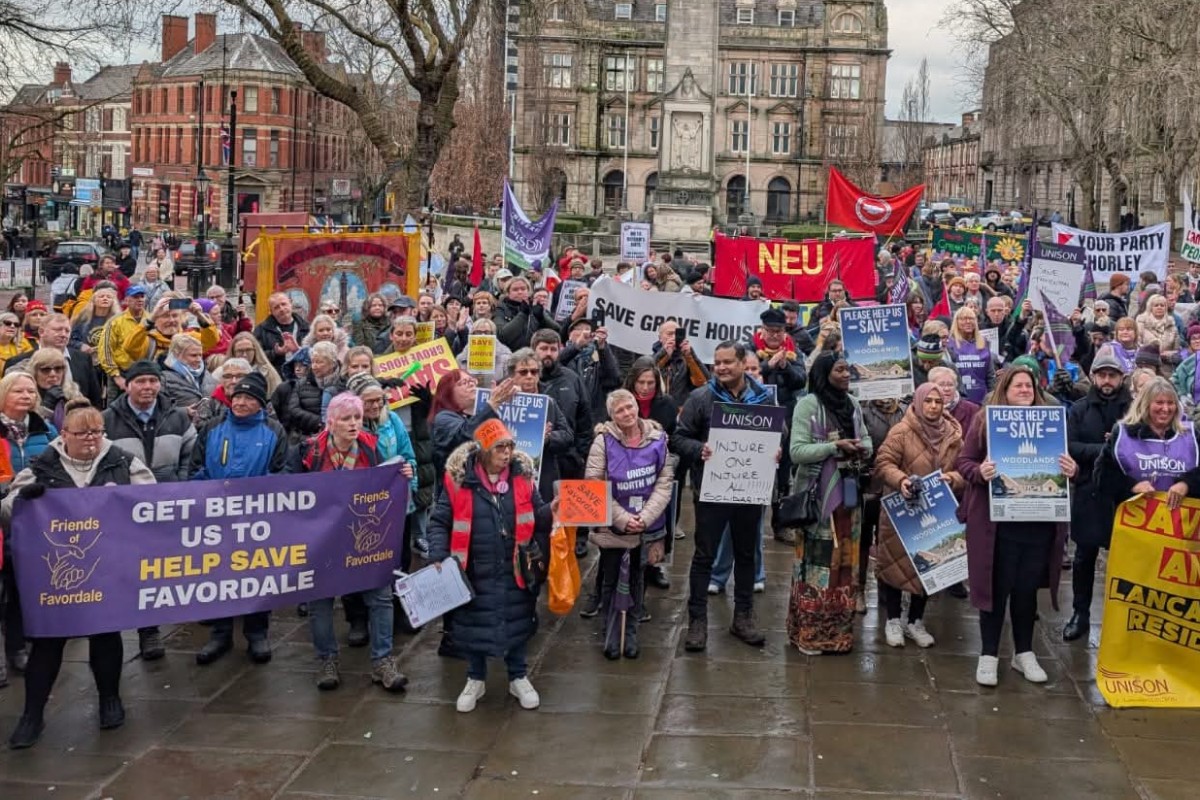At this year’s conference one subject dominated the whole proceedings: the question of pay. At the core was the divisive and insulting pay offer by Jeremy Hunt, Health Minister, who has ignored the NHS Pay Review Body recommendations and is only prepared to give a 1% pay increase to staff who are already at the top of their grade and nothing to the rest. 70% of staff in the NHS will therefore not get a pay rise.
At this year’s conference one subject dominated the whole proceedings: the question of pay. At the core was the divisive and insulting pay offer by Jeremy Hunt, Health Minister, who has ignored the NHS Pay Review Body recommendations and is only prepared to give a 1% pay increase to staff who are already at the top of their grade and nothing to the rest. 70% of staff in the NHS will therefore not get a pay rise.
When we fight for members, we recruit new members
The first session on Monday morning was on Recruitment and Organising. Delegate after delegate emphasised that it is only when Unison is fighting for its members that it becomes attractive to non-members, whether this is in fighting the threats of privatisation and sell offs or in demanding better pay. The rest of the day seemed to be an attempt by the executive to dampen the anger with a 90-minute panel discussion on Integrated Health & Social Care.
Delegates became enthusiastic, however, when one of the Unison members on strike against Care UK in Doncaster addressed conference. This strike is to stop Care UK slashing their pay, terms and conditions. In some cases the planned changes would see staff losing half of their take-home pay. As was stated from the rostrum – this is the consequence of privatisation.
Pay debate: the need to strike
Tuesday was the day for the debate on pay. However, the conference was left in confusion by the ruling from the platform that if Emergency Motion 1 was carried all other motions would fall, and yet the Executive supported all the motions on Pay. The reason given was that if all were passed it would result in differing outcomes; but the only real difference was that Composite B called on consulting with other health unions and other Unison Service groups with unresolved pay issues for coordinated industrial action.
Nevertheless, the debate was a very positive one, with an agreed strategy to campaign in every workplace and every branch for support for a ballot for strike action. A midwife from Stockton said, “Unison has to be a union that takes action, not just talks about action.” Every speaker said we need to convince our members that it is possible and that we can win; even speakers who were against the motion did so on the question of whether it is possible to persuade our members to strike.
The impact of low pay
Example after example was given of the effects on low pay. NHS staff in the Cameron’s constituency cannot afford to live in Oxfordshire and are going to foodbanks to survive. A delegate told of how as a single parent he received a phone call from his 12-year-old daughter stating there is no food in the house, only later to be ashamed when his daughter found out about his “Wonga” pay day loan. He finished his contribution with “the reality is I can’t afford to strike, but then I can’t afford not to strike”.
The biggest fear amongst our members is rising debt. Our children are in poverty. The MPs can give themselves a rise of £7,200 which is more than a many Unison members earn in a year. A delegate from Northern Ireland said, “Our members do not need to know why not to strike, but when to strike”
Anger and frustration
The majority of speakers from the floor were first time delegates, full of anger and frustration. A delegate who worked in finance even came up with the fastest way to settle this dispute, “just bring out all the finance staff who prepare the cheques for Cameron’s friends in Big Business. He will soon change his mind”.
Some delegates did draw correct conclusions for conference that it was the capitalist crisis that give the rich elite the right to demand that the poorest in society pay for their failed system. This fight is not just for the NHS low paid – a victory will give confidence to all low paid workers to take action. Why is it that when there is money to reward “talent” in the banks, we cannot do that in the NHS?
The main issue that delegates made reference to time and time again was the question of what we are going to fight for. As one delegate said, paraphrasing William Wallace, “If you are going to fight, make it worthwhile”. This is not a fight for 1% or even 2% pay increase – if 11% is good enough for MPs, then it is good enough for us. “If we are not fighting for better pay, then what is our purpose.”
Campaign for strike action
The problem is that the resolution from the Health Service Group Executive fails to flesh out these demands. All it asks of future ministers is for a vague request to reinstate the value of NHS pay lost since 2010. A campaign for strike action has to give the hope of a better deal. In Scotland the devolved government has paid in full the Pay Review Body award of 1% and in England 30% of the staff will get 1% even if it is non-consolidated. It would be impossible to win the ballot if it was about some future possible payment.
The main debate in the afternoon was on the very need to improve the mechanisms for pay bargaining. According to the Health Service Group Executive motion on Future Pay Determination in the NHS, for some years the Pay Review Body (PRB) has lacked political independence and has carried out the bidding of ConDem government in pay freezes. etc.; but rather than rely on the collective bargaining strength and use the union’s organisation to campaign for better terms and conditions, the Executive would rather seek a mythical reinvention of an independent PRB that is free from government interference.
The need for change
A counter argument was put by the Scottish Health Committee. Unfortunately, it called for negotiations directly with the devolved UK governments. This allowed the Executive to oppose the resolution on the grounds that NHS pay would be varied across the UK. However, the sentiment of conference was for a need for change. It will be difficult for the Executive to support the PRB structure and then strike for more. If we see another derisory offer in a year’s time, then the PRB is dead in the water.
On Tuesday afternoon a powerful presentation by Dawn Downs, Branch Secretary, George Eliot Hospital, Nuneaton, on fighting the sell-off of the hospital to private bidders had conference mesmerised. From a small Unison branch with only three reps, with hard work and cupcakes the branch not only increased its membership, but also its activists, and now the branch has nineteen reps.
Take the fight to the streets
In addition to growing the branch, Unison took the fight to the streets of Nuneaton, building up support with the distinctive broken heart posters on display in shops and homes across the town and organising a large number of public meetings. Dawn put her family home at risk by agreeing to be part of the procurement process so that she could challenge the false assumptions the Trust were using, but if she was found to have leaked a single commercial secret, she was liable for £100,000s in compensation.
Dawn described this process as lockdown, with her not being able to tell her members what was happening. Nevertheless, she still continued with the fight. Dawn was aided in her forensic analysis of the trusts figures by Richard Bourne, former chair of the Socialist Health Association. Other help also came in a legal challenge. A public lawyer hired by Unison told the conference a vital lesson that all trade unionists should learn: that in the courts, the labour movement only wins when you have created a mass movement.
The issue of pay came up again this time as “Downbandings/Pay Cuts”. Hospital management are reneging on the Agenda for Change job banding and reclassifying staff into a lower pay scale, no matter how management try and dress it up as “Skill Mix Review”. In reality workers will end up doing the same job for less money, which can be a 14% cut. In Mid Yorkshire some 400 admin and clerical staff showed that the only action was to strike against the downbanding of their posts. A nine-day strike won increased salary protection. As more and more Trusts find themselves strapped for cash, workers will see this draconian measure used against them. Conference called for more industrial action to defend pay.
For a militant fight against cuts and attacks
Unison faces a challenge before the next conference in Liverpool. If it shows weakness in the face of attacks on pay, jobs and all the other Tory assaults, then this will only invite further more drastic cuts to terms and conditions. Let the campaign and industrial action for better pay be the transformation of the union into a militant fighting force.






